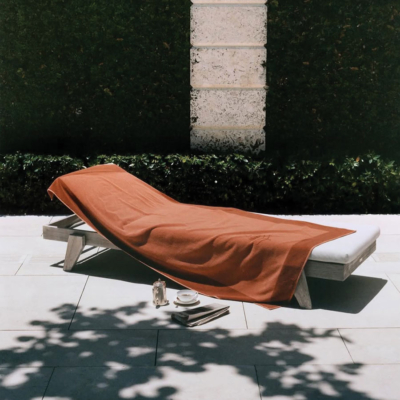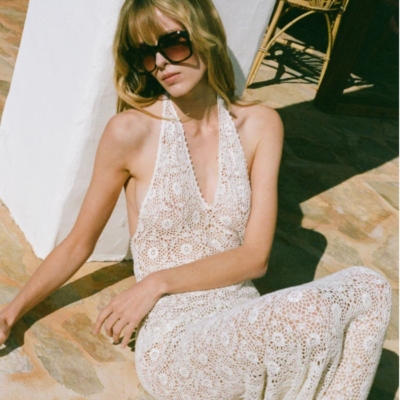POLLY DEVLIN’S REMEMBRANCE OF PEOPLE AND TIMES PAST IS TRIGGERED BY HER COLLECTION OF TREASURED ANTIQUES AND THE BACKSTORIES OF THEIR ACQUISITION …
For new readers and seasoned ones … This is the eleventh episode in the loose concoction called The Remembering Rope – a series of memories describing the fruits of my travels and my addiction to collecting – an addiction which skewed my life as all addictions do.
Talk about collecting! What I need to collect up at the moment are my brains which have drifted somewhat astray and I find I am endlessly rehearsing and remembering old quotations, arbitrary and beautiful, and the prayers and litanies of childhood. Also roiling around in my mind are passages of Shakespeare, which I can recite, because I learnt them when I was young enough to be so knocked back by the use – the use – of fabulous language and they have stuck with me like wonderful mind burrs, though I may be vague as to what day it is today. I’m sorry to say that no one has ever actually asked me to recite but when drink has been taken and given half a chance I can become red-handed Lady Macbeth quite quickly.
Poetry has always been my passion and stay, and I still collect poems and lines that are like beacons in the darkness – Denise Levertov (There is no savour more sweet, more salt than to be glad to be what, woman, and who, myself, I am) Mary Oliver (“One Hundred White-Sided Dolphins On A Summer Day”) Wisla Szyborska (I’ll have to pay for myself with myself ) James Fenton (We hurt each other badly once/ we said a lot of nasty stuff/ But lately I’ve been thinking how I didn’t hurt you enough) Louise Gluck. So many great poets and we are so lucky to have them.
Now a little bit of bragging? Maybe? Every Christmas I put together an anthology of my different favourite poems, some old dears (There’s a breathless hush in the Close tonight) some heartbreaking (Lay your sleeping head, my love Human on my faithless arm…) some sad (I took my life and threw it on the skip) some written by friends. Then Rosy, a wonderful woman who runs a bindery in Somerset, makes them into an exquisite leather book, adds end-papers made of photographs of the person who is being given the book (sent secretly by their families) gold-stamps the title and dedication and off it goes for Christmas Day. I can’t even begin to tell you of the reaction of the givee.
Of all the poets, I think that WH Auden is the best for separate lines that can move to tears or comprehensions and he is a wonderful composer of aperçus which encapsulate so much. Who else could say, “No unearned income can buy us back the gait and gestures to manage a baroque staircase, or the art of believing footmen don’t hear human speech …” Nevertheless and with the deepest respect, I venture that, like Yeats, he could get it wrong. He wrote, in his lovely poem, “Up There”: Only women cling to Items out of their past they have no use for, Can’t name now what they couldn’t bear to part with …
When I first read this, it hit me as true until I thought, hang on, simples! Auden doesn’t know what he’s talking about here. He was not a collector and insisted that he was not an addict, though he took large daily doses of Benzedrine and was a heavy drinker. Not for nothing was he was once called “Vin Audenaire” and with his usual selfdeprecating irony contended that he was not an alcoholic but a drunk and when asked to define the difference said, “An alcoholic has a personality change after a drink or two, but a drunk can drink as much as he wants”. I wouldn’t know if this is true or not but I know he hadn’t muchuse for creature comforts nor decoration.
I think, nay, I know, that women cling to items out of their past because their use is valuable – they may not be aesthetically satisfying (though I think mine are) – but they assist with emotional wellbeing, they produce sentiment and memory, sadness and desire and they arouse the heart. Readers who have read about my habit know that there are many things, too many, in my house yet when I look at each one – I don’t want to make Proust of myself here – a whole episode of my life arises and, to quote Thomas Moore, fond memories bring the light of other days around me. Auden went on to write that men are different from women in their keeping and collecting and that men who are keen collectors of, say, glass or coins build Special cabinets for them, date on, index Each new specimen. Not my style at all but I have an old Greek coin that I can date and index and its special cabinet is a thin gold chain around my daughter’s neck. That’s a lot of use right here and there.
Perhaps only women cling to items out of their past they have no use for.
So. That coin. Years ago my husband was wandering in the desert near Palmyra, as one does, or one did. Oh happy long-gone days in every sense. The devastation of Syria and that beautiful place makes one cold with anger and despair, an ancient architectural treasure trove nearly destroyed by ignorant Isis and still a warzone scattered with landmines and booby traps. No-one would go wandering there now, but there he was, dreaming as only he could and revelling at the sight of the astounding monuments, when an old man approached him and from about his many robes produced a small gold coin. In its precision and definition it might have been minted the day before. My husband, without haggling, paid the equivalent of the £10 the ancient was asking and both were well pleased with the bargain. Back in London, he took it to an expert in the British Museum who said it depicted the head of Alexander the Great and was a fine example of his coinage. How much, my husband delicately enquired, is it worth? The expert sucked his teeth. “About ten pounds.” This made my husband extremely pleased – nobody had been bamboozled in the agreeable transaction in the desert. He absolutely treasured it and left it to Daisy when he died.
If this coin was anything to go by, Alexander was a truly beautiful man. Studying and handling it, nearly two and half thousand years old, led me to start finding out about Alexander’s extraordinary epic life and history, and also led me to Greece and Greek ruins, to reading the great Greek poets playwrights and thence to contemporary poets’ take on the epics – Ted Hughes’ Tales of Ovid, Christopher Logue’s brilliant version of The Iliad and, most moving, Seamus Heaney’s posthumous complete translation of Aeneid Book VI. (I never went to university because of adverse circumstances and it is something I have regretted all my life. The sheer luxury of three years of reading, writing, learning of talking about literature makes me ill with envy and I despise people – there are so many – who tell me I missed nothing. I would have loved to have studied the Classics).
Because of the coin, I began to read on the discovery of Troy by the sly Heinrich Schliemann and then the story of the unearthing of the palace of Knossos on the Greek island of Crete – revealing a whole different civilisation – by the British archaeologist Arthur Evans. He was a remarkable man, later knighted for his transfiguring work and I became fascinated by him and his almost fanatical quests for evidence of lost history.
Then, in one of those synchronistic things that often happen in life if you are lucky, we moved house and in the big old shrouded house above us on the hill lived Dame Joan Evans, old and a bit cranky, and to my astonishment realised she was Sir Arthur Evans half-sister. Well, this was like finding Ozymandias’s sister was alive and well on my doorstep.
When I got to know her a little better I never asked her about her half-brother – it might as well have been a no-go area. She was many years younger with a different mother, and by then she herself was a national treasure, a distinguished historian, a dazzling connoisseur and collector of historic English, French and Medieval jewellery. She donated her fabulous collection – more than 800 pieces – to the Victoria and Albert Museum in 1977.
The rings! One from 1400 with a diamond set high, with Ave Maria inscribed on the shoulders! The rubies! The diamonds! The brooches! The religious emblems! Then too how could I not admire someone who, the most erudite and far-ranging study you could read about the History of Ornament in Western Europe and A History of Jewellery, from 1100-1870.
When I was first introduced to her as the new neighbour she was civil, nothing more, but later she asked me back to tea. I ran the local branch of the NSPCC then and as I was about leave I, asked, tentatively, if she could perhaps give a donation towards the NSPCC sale I was organising. She looked me in the eye and said: “I don’t give money. I think most of the money never reaches the charities.” Perhaps I ought not to have asked but it was a charity close to my heart. I don’t think I have ever been so hurt and insulted in my life and I quietly got up to go, but she saw what she had done and called me back, hobbled to one of her many bookcases and gave me a book which she inscribed.
It was a copy of Prelude and Fugue, her autobiography, in which she describes her life on holiday in her nanny’s mother’s cottage (her own mother refused to care for her if Nanny was away so Nanny always took the child with her). She always had a fabulous eye, of course, and noticed everything and this is what that child saw in an old sweet-smelling corner cupboard in her nanny’s mother’s kitchen: Mace and cinnamon, cloves and caraway, nutmegs and black peppers, in a japanned box with radiating compartments: tins of ginger and mustard, dried herbs like fennel and lime (but mint, thyme, and marjoram were used fresh from the garden); sweet and bitter almonds in their skins, tins of currants, sticky blue paper packets of raisins, and vanilla pods in a long glass tube, which were simmered in the custard, dried and used again and again. On the top shelf was the sugar, in tall loaves wrapped in grey paper, that had to be cut with tong-like scissors and broken into lumps with a pestle in the mortar when it was wanted for use. For use.
So yes, perhaps Only women cling to Items out of their past they have no use for. But just look at how the uselessness of things can enrich us, dear dead Auden.
LOVETHEGLOSS.IE?
Sign up to our MAILING LIST now for a roundup of the latest fashion, beauty, interiors and entertaining news from THE GLOSS MAGAZINE’s daily dispatches.










